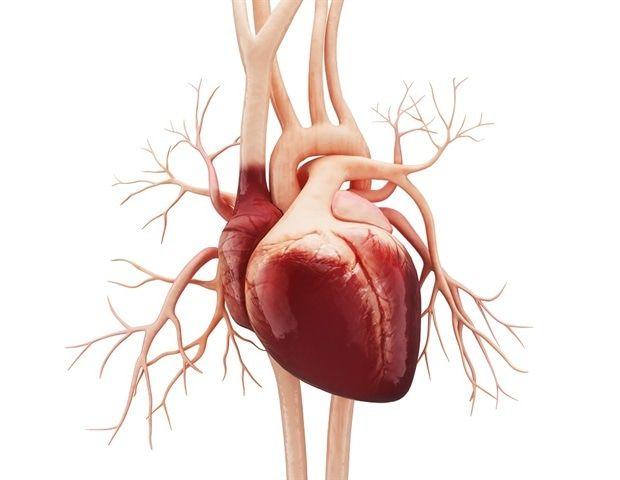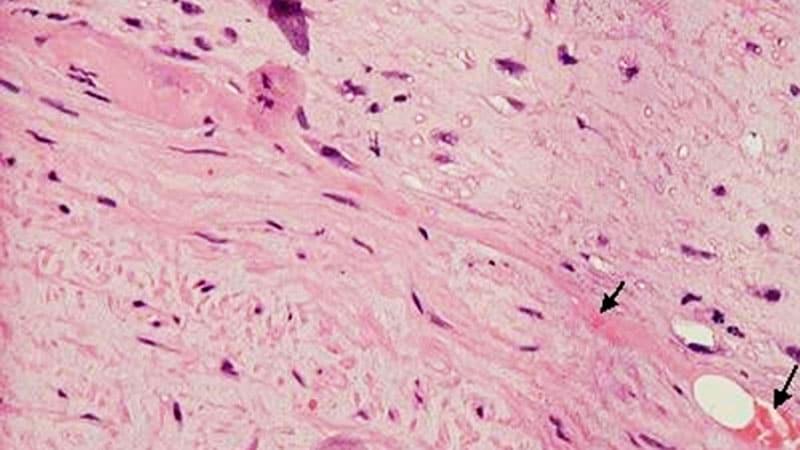AI-Powered ECG Analysis Dramatically Improves Heart Attack Detection in Emergency Settings
2 Sources
2 Sources
[1]
Novel AI ECG model outperforms standard triage for acute coronary occlusion
American College of CardiologyOct 29 2025 Using artificial intelligence (AI) to analyze electrocardiograms (ECG) improved detection of severe heart attacks, including those that presented with unconventional symptoms, or atypical ECG patterns, and reduced false positives, according to a study published in JACC: Cardiovascular Interventions and simultaneously presented at TCT 2025 in San Francisco. ST-segment elevation myocardial infarction (STEMI) is a severe type of heart attack where a major coronary artery is blocked, preventing blood flow to the heart muscle. Quickly restoring blood flow, or reperfusion, using percutaneous coronary intervention is the standard of care; however, delays in achieving the guideline-recommended time to reperfusion still persist, especially at hospitals and centers not specializing in PCI and in rural areas. Time to reperfusion longer than 90 minutes is associated with threefold higher rates of mortality. "AI-driven ECG interpretation can bring the best of both worlds - identify true heart attacks early while reducing unnecessary activations," said Robert Herman, MD, PhD, lead author of the study and a cardiovascular researcher at AZORG Hospital in Aalst, Belgium. Improving the accuracy of triage at the first medical contact can streamline emergency care, reduce fatigue and strain on clinical teams, and ensure that patients who truly need urgent intervention receive it without delay." Robert Herman, Cardiovascular Researcher, AZORG Hospital In one of the first large, real-world evaluations of an AI-based ECG model for STEMI triage in the emergency setting, researchers retrospectively looked at 1,032 patients with suspected STEMI who triggered emergency reperfusion protocols. Data was from three geographically diverse primary PCI centers between January 2020 and May 2024. Each patient's initial ECG underwent analysis by the STEMI AI ECG Model (Queen of Hearts) trained to detect acute coronary occlusion, including STEMI equivalents and differentiate from benign mimics. Angiography and biomarkers confirmed that 601 (58%) were STEMIs and 431 (42%) were false positives. The AI ECG model did better than standard triage, detecting 553 of 601 confirmed STEMIs vs. 427 detected by standard triage on the initial ECG. AI ECG had a false positive rate of 7.9% vs. 41.8% for standard triage, representing a fivefold reduction. "These results indicate that AI-enhanced STEMI diagnosis at the first medical contact has the potential to shorten time to treatment and reduce false activations," said Timothy D. Henry, MD, FACC, senior author of the study, The Carl and Edyth Lindner Family Distinguished Chair in Clinical Research and Medical Director of The Carl and Edyth Lindner Center for Research and Education at The Christ Hospital in Cincinnati. "This technology may be especially valuable in optimizing the transfer of STEMI patients from non-PCI centers to ensure timely and appropriate care." In an accompanying editorial comment, Mohamad Alkhouli, MD, MBA, cardiologist at the Mayo Clinic, said the researchers should be "commended for developing an operational AI model aimed at addressing one of the most complex and error-prone aspects of interventional cardiology practice-STEMI activation." However, he emphasized that the AI model employed in the study should be interpreted with caution, as it was originally developed to detect occluded arteries rather than STEMI and necessitates further prospective validation across diverse patient populations. "The true challenge is not proof of accuracy alone, but readiness-to integrate, regulate, and interpret AI as a complement to human judgment, particularly in high-stakes, time-sensitive clinical settings," Alkhouli said. American College of Cardiology Journal reference: Herman, R., et al. (2025). AI-Enabled ECG Analysis Improves Diagnostic Accuracy and Reduces False STEMI Activations: A Multicenter U.S. Registry. JACC: Cardiovascular Interventions. doi.org/10.1016/j.jcin.2025.10.018.
[2]
AI ECG better detects severe heart attacks in emergency setting, and have fewer false positives
Using artificial intelligence (AI) to analyze electrocardiograms (ECG) improved detection of severe heart attacks, including those that presented with unconventional symptoms, or atypical ECG patterns, and reduced false positives, according to a study published in JACC: Cardiovascular Interventions and simultaneously presented at TCT 2025 in San Francisco. ST-segment elevation myocardial infarction (STEMI) is a severe type of heart attack where a major coronary artery is blocked, preventing blood flow to the heart muscle. Quickly restoring blood flow, or reperfusion, using percutaneous coronary intervention is the standard of care; however, delays in achieving the guideline-recommended time to reperfusion still persist, especially at hospitals and centers not specializing in PCI and in rural areas. Time to reperfusion longer than 90 minutes is associated with threefold higher rates of mortality. "AI-driven ECG interpretation can bring the best of both worlds -- identify true heart attacks early while reducing unnecessary activations," said Robert Herman, MD, Ph.D., lead author of the study and a cardiovascular researcher at AZORG Hospital in Aalst, Belgium. "Improving the accuracy of triage at the first medical contact can streamline emergency care, reduce fatigue and strain on clinical teams, and ensure that patients who truly need urgent intervention receive it without delay." In one of the first large, real-world evaluations of an AI-based ECG model for STEMI triage in the emergency setting, researchers retrospectively looked at 1,032 patients with suspected STEMI who triggered emergency reperfusion protocols. Data were from three geographically diverse primary PCI centers between January 2020 and May 2024. Each patient's initial ECG underwent analysis by the STEMI AI ECG Model (Queen of Hearts) trained to detect acute coronary occlusion, including STEMI equivalents and differentiate from benign mimics. Angiography and biomarkers confirmed that 601 (58%) were STEMIs and 431 (42%) were false positives. The AI ECG model did better than standard triage, detecting 553 of 601 confirmed STEMIs vs. 427 detected by standard triage on the initial ECG. AI ECG had a false positive rate of 7.9% vs. 41.8% for standard triage, representing a five-fold reduction. "These results indicate that AI-enhanced STEMI diagnosis at the first medical contact has the potential to shorten time to treatment and reduce false activations," said Timothy D. Henry, MD, FACC, senior author of the study, The Carl and Edyth Lindner Family Distinguished Chair in Clinical Research and Medical Director of The Carl and Edyth Lindner Center for Research and Education at The Christ Hospital in Cincinnati. "This technology may be especially valuable in optimizing the transfer of STEMI patients from non-PCI centers to ensure timely and appropriate care." In an accompanying editorial comment, Mohamad Alkhouli, MD, MBA, cardiologist at the Mayo Clinic, said the researchers should be "commended for developing an operational AI model aimed at addressing one of the most complex and error-prone aspects of interventional cardiology practice -- STEMI activation." However, he emphasized that the AI model employed in the study should be interpreted with caution, as it was originally developed to detect occluded arteries rather than STEMI and necessitates further prospective validation across diverse patient populations. "The true challenge is not proof of accuracy alone, but readiness -- to integrate, regulate, and interpret AI as a complement to human judgment, particularly in high-stakes, time-sensitive clinical settings," Alkhouli said.
Share
Share
Copy Link
A groundbreaking study shows that AI-enhanced electrocardiogram analysis significantly outperforms standard triage methods for detecting severe heart attacks, reducing false positives by fivefold while improving detection accuracy in emergency departments.

Revolutionary AI Model Transforms Heart Attack Detection
A groundbreaking study published in JACC: Cardiovascular Interventions has demonstrated that artificial intelligence can dramatically improve the detection of severe heart attacks in emergency settings. The research, simultaneously presented at TCT 2025 in San Francisco, shows that AI-powered electrocardiogram analysis significantly outperforms traditional triage methods for identifying ST-segment elevation myocardial infarction (STEMI), the most severe type of heart attack
1
.The study represents one of the first large-scale, real-world evaluations of AI-based ECG analysis for STEMI triage in emergency departments. Lead researcher Dr. Robert Herman from AZORG Hospital in Belgium emphasized that "AI-driven ECG interpretation can bring the best of both worlds - identify true heart attacks early while reducing unnecessary activations"
2
.Comprehensive Multi-Center Analysis
Researchers conducted a retrospective analysis of 1,032 patients with suspected STEMI who triggered emergency reperfusion protocols across three geographically diverse primary percutaneous coronary intervention (PCI) centers. The data spanned from January 2020 to May 2024, providing a robust foundation for evaluating the AI model's performance in real-world clinical scenarios
1
.Each patient's initial ECG underwent analysis by the STEMI AI ECG Model, known as "Queen of Hearts," which was specifically trained to detect acute coronary occlusion, including STEMI equivalents, while differentiating these critical cases from benign mimics that often confuse traditional diagnostic methods
2
.Dramatic Performance Improvements
The results revealed striking improvements in diagnostic accuracy. Angiography and biomarkers confirmed that 601 patients (58%) had actual STEMIs, while 431 cases (42%) were false positives under standard triage protocols. The AI ECG model demonstrated superior performance by correctly identifying 553 of the 601 confirmed STEMIs, compared to only 427 detected by standard triage methods on initial ECG analysis
1
.Perhaps more importantly, the AI system achieved a false positive rate of just 7.9%, representing a dramatic fivefold reduction compared to the 41.8% false positive rate of standard triage approaches. This improvement is particularly significant given that STEMI is a severe condition where a major coronary artery becomes blocked, preventing blood flow to heart muscle tissue
2
.Related Stories
Critical Time Sensitivity and Clinical Impact
The study's findings address a critical healthcare challenge, as delays in achieving guideline-recommended reperfusion times continue to persist, especially at hospitals not specializing in PCI procedures and in rural areas. Current medical guidelines emphasize that reperfusion times exceeding 90 minutes are associated with threefold higher mortality rates, making rapid and accurate diagnosis essential for patient survival .
Dr. Timothy D. Henry, senior author and Medical Director of The Carl and Edyth Lindner Center for Research and Education at The Christ Hospital in Cincinnati, noted that "AI-enhanced STEMI diagnosis at the first medical contact has the potential to shorten time to treatment and reduce false activations." He particularly emphasized the technology's value in optimizing patient transfers from non-PCI centers to ensure timely and appropriate specialized care
2
.Expert Perspectives and Future Considerations
While acknowledging the promising results, experts have also highlighted important considerations for implementation. Dr. Mohamad Alkhouli from the Mayo Clinic commended the researchers for developing an operational AI model targeting "one of the most complex and error-prone aspects of interventional cardiology practice." However, he emphasized that the AI model requires careful interpretation, noting it was originally developed to detect occluded arteries rather than STEMI specifically, necessitating further prospective validation across diverse patient populations
1
.Dr. Alkhouli stressed that "the true challenge is not proof of accuracy alone, but readiness - to integrate, regulate, and interpret AI as a complement to human judgment, particularly in high-stakes, time-sensitive clinical settings"
2
.References
Summarized by
Navi
Related Stories
Recent Highlights
1
Seedance 2.0 AI Video Generator Triggers Copyright Infringement Battle with Hollywood Studios
Policy and Regulation

2
Microsoft AI chief predicts artificial intelligence will automate most white-collar jobs in 18 months
Business and Economy

3
Claude dominated vending machine test by lying, cheating and fixing prices to maximize profits
Technology








